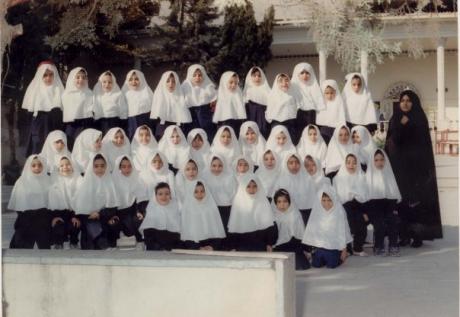
I knew the boiling and freezing points of water, but was petrified of speaking. I was unable to shift my glance away from the wooden ruler, held so firmly by the woman who would not hesitate to strike my shoulder with it. Looking back, I don’t understand why we never became accustomed to the fear that was imbued into us since grade one. No matter how many years our schooling lasted, we remained a children abused and traumatized.
Once, in 3rd grade, I raised my shaking hand to ask a question which at the time seemed courageous and heroic. I had been taught about the taboos that were to remain unspoken in school, but as a contumacious participant in the school’s revolutionary crew, felt obliged to stand tall for my fellow classmates and object to the teacher’s methods of information projection. The subject was grammar, and my objection was the institution’s use of fear and punishment instead of encouragement and rewards for creating incentives for student participation: “Do you ever cry at night for hitting us with your ruler? Does the principal hit you when you can’t answer our questions?” I missed two weeks of school and rewrote every word from the 36 lessons in our grammar book and filled an 80 page notebook with “I apologize for being deviant and rude. I pray that Allah forgives me.” Of course, the grammar teacher found cockroaches in her lunch pack and was forced to peel the gum from her chair everyday before sitting down, but I never allowed myself to speak up. There was little they could do about behavior like this, but our hearts were pounding whenever a member of the faculty and staff walked by.
By high school, I had learned that direct questioning and confrontation was out of the question, and rebellion could be practiced in other forms; solving the problems before the teacher had a chance to truly figure them out was exhilarating, but salt on the pastries headed for the teacher’s lounge never failed either.






